It’s time you got ready for your next adventure. Or, it’s time you helped your child get ready for his/her next adventure – college. But before that adventure can even start, you or he/she will need to get into college. Preferably, the one of your/his/her own choosing. If you don’t want to leave things to chance, the best way to get into your preferred choice is to ace the ACT or SAT. And the only way to do that is to practice, practice, practice. Now, there is a lot of information available online so you can probably wing it. But if you want the best results, you’ll need professional help – an ACT/SAT test prep course. The only problem is, how do you determine which one will work best for you or your kid? If you don’t have the time to read our comprehensive guide below, you can simply choose from the ones we’ve already determined to be the best in the business.
Top 9 ACT/SAT Test Prep Courses Of 2020 Reviewed
1. Kaplan Test Prep
 Best Test Prep For Aat and Act
Best Test Prep For Aat and Act
 Kaplan claims to be the world leader in test prep and it’s hard to discredit that from what we’ve seen. It has courses for more than 120 tests including the ACT and SAT. The company offers several packages: In Person, Live Online, Tutoring, Unlimited Prep, Self-Paced, and Rapid Review Live.
Kaplan claims to be the world leader in test prep and it’s hard to discredit that from what we’ve seen. It has courses for more than 120 tests including the ACT and SAT. The company offers several packages: In Person, Live Online, Tutoring, Unlimited Prep, Self-Paced, and Rapid Review Live.
All packages include the following:
- 8 hours of in-person instruction
- 30 hours of elective online instruction (accessible by tablet, laptop, or mobile device)
- 8 practice tests
- Kaplan prep materials
- 40 hours of online lessons
- A variety of online quizzes and the Kaplan Quiz Bank
Depending on the package chosen, the range of prices could start at $30 (for the last-minute prep before the SAT) to $5699 (for SAT Tutoring, 36 hours). The beauty of this test prep course is that you are able to gain access to video tutorials whenever and wherever you are. In addition, all instructors are required to at least score at 90 percent or above on the test they are tutoring the students in.
Students can learn from their strategies whether it’s on how to create the perfect study plan or how to get into the proper mindset for training. The mixture of in-person classes, online instruction, book assignments, and practice questions both online and offline ensures you get the best of all worlds. And you can easily find the right test prep course that works with your schedule and learning style.
2. Princeton Review
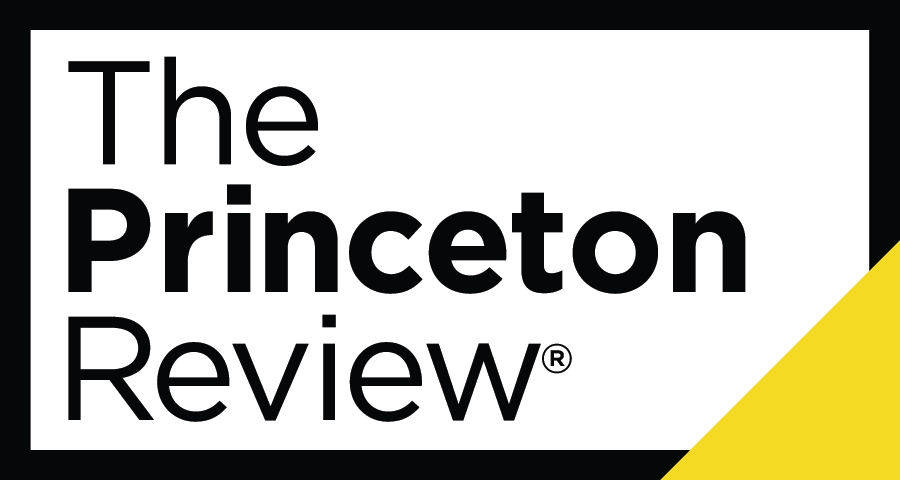 Another powerhouse in the test prep industry is Princeton Review. You definitely can’t go wrong with a company that offers you a money-back guarantee. If you don’t score higher, the company will refund your tuition. If you’re not satisfied, you can repeat the program for free. However, that’s not what makes Princeton Review a favorite. It’s the fact that it already allows you to practice for both tests in one go. The packages are varied, the lowest being the Self-paced program at $99 which is also included in all the other packages.
Another powerhouse in the test prep industry is Princeton Review. You definitely can’t go wrong with a company that offers you a money-back guarantee. If you don’t score higher, the company will refund your tuition. If you’re not satisfied, you can repeat the program for free. However, that’s not what makes Princeton Review a favorite. It’s the fact that it already allows you to practice for both tests in one go. The packages are varied, the lowest being the Self-paced program at $99 which is also included in all the other packages.
The Self-Paced Package includes:
- 377 online drills
- 3200+ online practice questions
- 15 online practice tests (11 SAT and 4 ACT)
- 16 single-section tests (8 for each exam)
The program also uses a Recommendation Engine which customizes your lesson plan based on the results of your practice tests, drills, etc. For an additional $200, you get 5 hours of on-demand tutoring which is basically access to a tutor to walk you through whatever question you’re struggling with plus 8 more practice tests (4 per test).
Other packages allow you to sit in an expert-led classroom course for a certain number of hours and provides you with several proctored practice tests to give you a feel of the real thing. Princeton Review also offers private tutoring which is paid by the hour, either $167 or $180, depending on the package you choose. With these packages, you get the truly customized learning with custom-built apps that help you manage your progress, communicate with your tutor, and schedule your sessions.
3. Khan Academy
 Best Online Sat Test Prep Courses
Best Online Sat Test Prep Courses
Not everyone has the budget for a test prep course but that doesn’t mean you can’t take one. Khan Academy is a nonprofit that has partnered with the makers of SAT, the College Board, and created the Official SAT prep course. All 7 full-length practice tests on the website are free and have been designed by the testing staff of College Board. Aside from tests, you also get video lessons, reference articles, interactive quizzes, and review materials. All for free. The best part of this program is that Khan Academy customizes the program according to the results of your diagnostic quizzes.
 You can even add your previous PSAT and SAT scores to your Khan Academy account so it can use those as a guide in creating your study plan. In addition to lessons and practice materials, Khan Academy also provides tips and strategies on how to take the SAT. This includes tips on time management and how to correctly interpret tricky questions. The one thing that this program is lacking is the access to a live teacher for questions. Then again, this is free. So who are we to complain, right?
You can even add your previous PSAT and SAT scores to your Khan Academy account so it can use those as a guide in creating your study plan. In addition to lessons and practice materials, Khan Academy also provides tips and strategies on how to take the SAT. This includes tips on time management and how to correctly interpret tricky questions. The one thing that this program is lacking is the access to a live teacher for questions. Then again, this is free. So who are we to complain, right?
4. Sylvan Learning
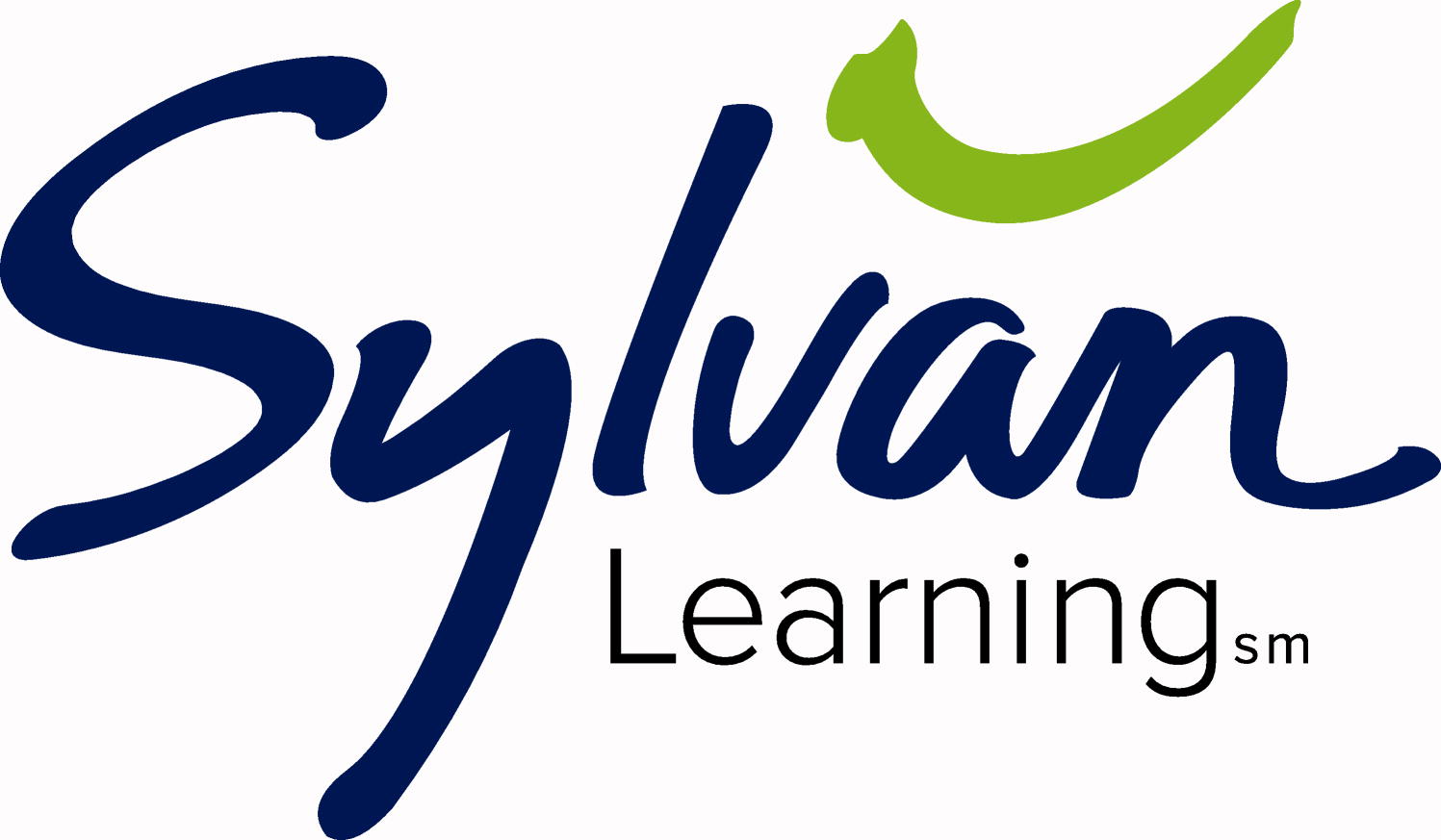 Sylvan Learning also offers both SAT and ACT test prep courses like all our previous picks. But there’s one main difference, it doesn’t offer a variety of packages that cater to different learning styles. Instead, it has created a tutoring program called Advancement & Test Prep that is a combination of one-to-one tutoring, small group classes, and a personalized, online lesson path. The students also get access to detailed video lessons, a vocabulary building tool, and full-length timed practice tests. And to help cater to the differing schedules of students, the various centers located across the US offer schedules in the afternoons, evenings, and weekends. The cost of this program will vary depending on the center and the tutor. The starting rate is $35 per hour and the average rate ranges from $45 to $50 per hour.
Sylvan Learning also offers both SAT and ACT test prep courses like all our previous picks. But there’s one main difference, it doesn’t offer a variety of packages that cater to different learning styles. Instead, it has created a tutoring program called Advancement & Test Prep that is a combination of one-to-one tutoring, small group classes, and a personalized, online lesson path. The students also get access to detailed video lessons, a vocabulary building tool, and full-length timed practice tests. And to help cater to the differing schedules of students, the various centers located across the US offer schedules in the afternoons, evenings, and weekends. The cost of this program will vary depending on the center and the tutor. The starting rate is $35 per hour and the average rate ranges from $45 to $50 per hour.
5. PrepScholar
 While all the descriptions offered by various test prep courses are informative, there’s nothing like getting to check out the real thing. And PrepScholar allows you to do just that. It offers a 5-day risk-free trial which enables you to cancel the program and get all your money back if you find out that the content isn’t worth it. Aside from that, the company also offers a specific guarantee. If you don’t increase by a certain amount of points (160+ for SAT and 4+ for ACT), then you can get your money back.
While all the descriptions offered by various test prep courses are informative, there’s nothing like getting to check out the real thing. And PrepScholar allows you to do just that. It offers a 5-day risk-free trial which enables you to cancel the program and get all your money back if you find out that the content isn’t worth it. Aside from that, the company also offers a specific guarantee. If you don’t increase by a certain amount of points (160+ for SAT and 4+ for ACT), then you can get your money back.
Another thing that sets this program apart is that it offers packages that are completely online. What this means is that you can choose between three different programs including online personalized classes with other students in the same level. The main package, the Complete Online Prep, costs $397 allows you to access the program for 1 whole year with no hour limitations. This access includes thousands of practice lessons, hundreds of content and problem-solving videos, skill lessons, detailed explanations, and several real practice tests. The other two programs, PrepScholar Classes and Complete+ Tutoring, also include the Complete Prep package.
Everything about this test prep course is customized to your skill level and progress, starting with a diagnostic test and continuously adapting throughout your program. Weekly reports, progress trackers, and customized feedback will provide you with motivation (who doesn’t feel energized seeing a progress chart going up?) and keep parents aware of how things are going. The PrepScholar program is perfect for those who want the entire course to be customized yet still offer a little bit of everything.
6. ACT Online Prep
 Best Act Test Prep Course Online
Best Act Test Prep Course Online
What better way to prepare for the ACT than learning from the very people who created it? The ACT Online Prep is not only unique because it was built by the test makers. It’s pretty unique because it’s fun. Yes, you read that right – FUN. This test prep course incorporates games to help you master relevant skills. There are also flashcards to help you build your vocabulary and practice your math skills.
 Another thing we love about this test prep course is the dashboard. It’s easy to read; at a glance, you’re able to see what’s your progress, how many days are left, what achievements you’ve unlocked, and the scores you got on the latest practice exam.
Another thing we love about this test prep course is the dashboard. It’s easy to read; at a glance, you’re able to see what’s your progress, how many days are left, what achievements you’ve unlocked, and the scores you got on the latest practice exam.
There’s also a discussion area where you can chat up with other students and get insights or help. Plus, the free mobile app allows you to study on-the-go. Because this program was created by the test makers, all practice questions and tests come from previous ACT tests. This way, you get familiarized with the format of the test which will make you feel more comfortable on test day.
Other things that make this program stand out is the personalized learning path, tools that track your progress, and a set of daily goals to keep you on target. This test prep course is a subscription service that starts at $39.95 for 6 months. The ACT Prep Pack includes the online program plus the Official ACT Prep Guide 2018 book. For an additional $140, you can get a 3-month subscription to Kaplan’s live online classroom. The ACT Online Prep is the perfect choice for those who plan on taking the ACT and lack the budget for more expensive programs.
7. Testmasters
Testmasters is another test prep course company that offers a score increase guarantee though theirs is slightly different. With them, you are guaranteed at least a 200-point increase for SAT or a 4-point increase for ACT. If not, they will provide you additional instruction at no charge. But that’s not all that’s different with this company. For those enrolled in their ACT course, they are able to access additional practice sessions for free over a period of 6 months after the end of their course. They are also provided with the incentive of a $1000 scholarship if you achieve a perfect 36 on the test.
All courses have group discounts which can reach as much as $200 per person. Students can choose between a classroom course, private one-on-one, or an online course. Prices range from $649 to $2499. Each course provides you with 11/12 classes, over 1200 pages of course materials, official practice exams, and a study guide. This is the ideal choice for students who want to take a class together.
8. Prep Expert
If you want to ensure your success, they say you should learn from the best. And who better than someone who has gotten a perfect SAT score? Prep Expert was founded by Shaan Patel, a perfect SAT scorer. He, along with 7 other perfect SAT scorers, will help you learn custom, proprietary strategies that will increase your SAT score by 200 points or ACT score by 4 points or you get your money back.
Of course, that’s not the only thing that makes Prep Expert different. It’s the fact that this is the boot camp of test prep courses. The longest course is a 6-week program that features a 3-hour instruction class twice a week and a 4-hour full-length proctored exam which is used to simulate test-day conditions. Homework will be assigned throughout the course. This is the flagship course which costs $1399 for 60 in-person classroom hours and $999 for 60 hours of online classroom hours.
The company also offers a 3-week Fast Track course that is the expedited version of the 6-week course. There’s a self-paced video program for students who require flexibility which costs $799. This includes tutorials, quizzes, and full-length practice exams. And then there’s the ultimate boot camp of test prep courses – the Weekend Review. This crams everything you need to know for the test in 12+ hours (6+ on Saturday, 6+ on Sunday) just a week before test day. This weekend course costs $499. If the test day is nearing or your child learns better through short, intensive training, then the Prep Expert is your best bet.
9. ePrep
Unlike its competitors, the ePrep has a proven methodology that ensures you learn new things and not stuff you already got from the classroom. How does it do that? It all starts out with a test. Students are required to take a full-length practice test under timed conditions. This could be done offline or online (compatible with tablets, mobiles, and computers). The test is graded and the student is shown video lessons from an expert tutor discussing each question in the test. Not only does the student get the correct answer, he/she is shown how to approach the question and figure out which answer is correct. Also based on the test results, the student is given video lessons on their areas of weakness. You are allowed to watch the video numerous times, whenever and wherever you want. And then you can take the test again.
The focus is to maximize your time in raising your score slowly but surely. ePrep is solely online and relies solely on video lessons for content and strategy. Students who learn better through watching than through reading will benefit from this program. Aside from the video lessons, students also get the WordSmith vocabulary builder that will test you regularly on ACT/SAT-specific vocabulary. Several packages are offered, all of which revolve around test dates. The shortest time frame is 2 months at $129. Self-paced programs cost $399 and $599, providing you with access to the program for a full year.
Take note that only the ACT courses come with a Score Improvement Guarantee, the amount of points is dependent on the package is chosen. Those who are planning on taking both tests can buy a bundled course from ePrep which gives you a minimum discount of 15%. The prices for bundled courses range from $449 to $749.
How To Choose The Right ACT/SAT Test Prep Course
One of the biggest hurdles in anyone’s life is taking the SAT or ACT. It’ll open some doors to your future while closing others. These tests are designed to let colleges know how prepared you are to go to study in their school and how you compare with other students across the nation. Your test score will determine which schools will become available to you. Even better, your test score can help you qualify for scholarships. With so much resting on this test, a lot of parents and students are willing to do what it takes to better their chances. This means attending a test prep course.
What is a Test Prep Course?
So, a test prep course obviously helps students prepare for the topics that will be covered in the SAT or ACT and help ensure that they get the best score you possibly can. But not all of these are the same. Some test prep courses are free and available online. Some will offer one-on-one tutoring sessions while others are group classes. Some will offer preparation for only one test – either SAT or ACT – while others will provide resources for both. The resources used in these courses may include teachers, mock exams, and learning tools such as books and printed materials. Some may even provide software such as apps.
Is there a Difference Between the Two Tests?
Before you can choose which test prep course is right for you, you’ll need to decide which test – SAT or ACT – should work best in your favor. While both tests will be accepted by most schools – they usually don’t distinguish between the two – and there is a similarity in the content/topics covered, there are slight differences that make one easier than the other for test takers. There are several factors that you’ll need to consider when choosing which test to take. But before we get into that, let’s discuss first the differences.
Math
Both tests cover this subject but to varying degrees. In both tests, you can expect the following topics to show up:
- Basic Geometry
- Data Interpretation, Statistics, and Probability
- Functions
- Word problems
- Algebra
- Sequences
- Integers and Rational Numbers
But ACT also includes the following topics in its math section:
- Matrices
- Complex numbers
- Logarithms
- Conic Sections
- Trigonometry
Another difference is the fact that you’re allowed to use a calculator for all ACT math questions while there’s a subsection of the SAT where you’re only allowed to solve the problem by hand. Also, has significantly more questions that fall under geometry and trigonometry. Moreover, math formulas aren’t provided in the ACT. The SAT, on the other hand, will provide you with most of the formulas you’ll need at the beginning of the Math section.
| ACT | SAT | |
| Total Time | 60 minutes |
|
| # of Questions | 60 |
|
| Time per Question | 60 seconds |
|
| Topics Covered |
|
|
Writing/English
Like Math, both tests cover similar topics in English or Writing such as:
- Pronouns
- Verb Forms
- Idioms
- Adjectives
- Adverbs
- Conciseness and Redundancies
- Sentence Fragments
- Faulty Modifier
- Parallel Construction
However, the ACT has a wider range of topics which include:
- word choice
- transitional logic
- macro-logic
- comparison/description
- author’s formality and tone
Another difference between the two tests is the focus. In the ACT, you’ll get more questions on grammar and the even main idea of the passage. The SAT does have these types of questions in the writing section. However, it focuses more on writing style and appropriate word choice (vocabulary).
| ACT | SAT | |
| Total Time | 45 minutes | 35 minutes |
| # of Passages and Questions | 5 passages, 75 questions | 4 passages, 44 questions |
| Time per Question | 36 seconds | 48 seconds |
| Content |
|
|
Reading
Both tests will test your comprehension by asking about the main point, identifying details, inferring information, vocabulary in context, and the function of specific parts. However, questions in the SAT will also include sentence completion and fill-in-the-blank questions. In addition, you’ll be provided information on where in the passage they’re referring to when asking for specific details. Moreover, the questions are usually in chronological order.
On the other hand, SAT questions in this section will require you to cite specific evidence that supports the answer you made in the previous question. This means that if you got the answer wrong on the first question, it’s highly likely you won’t get the right answer in the second one.
In comparison, the ACT does not provide any kind of “help” in locating details in the passage; you’ll need to do that on your own. The questions are also in random order which may make things more difficult if you’re not good at remembering where you read specific details in the passage. Other topics covered include comparisons/contrasts, author method, and cause-effect. However, you won’t encounter any evidence-support questions in the ACT.
Below is a summary of the differences between the two tests’ Reading sections:
| ACT | SAT | |
| Total Time | 35 minutes | 65 minutes |
| # of Passages and Questions | 5 passages, 52 questions | 4 passages, 40 questions |
| Time per Question | 53 seconds | 75 seconds |
| Type of Passages | 1 Prose Fiction/Literary Narrative, 1 Social Sciences, 1 Humanities, 1 Natural Sciences | 1 US/World Literature, 2 History/Social Studies, 2 Science |
| Type of Questions | Main Idea, Vocab-in-Context, Inference, Detail-Oriented | Main Idea, Vocab-in-Context, Inference, Evidence Support, Data Reasoning, Technique, Detail-Oriented |
Science
The SAT does not have a science section but the ACT does. Now, this section won’t actually test your knowledge of scientific facts such as the freezing point of water. However, you will need some knowledge of the scientific language as well as experience in charts and graphs. The topics covered in this section are physics, chemistry, biology, data representation, and research summaries which include experimental design, hypothetical experimental changes, and interpreting experiments.
Using these topics, the Science section tests your critical thinking skills (or lack thereof). Take note that the SAT does have two passages in the reading section on scientific topics which includes questions on chart/graph analysis.
Essay
This section is optional for both tests. However, some schools will require you to take them. For example, Columbia, Penn, and Cornell do not require its applicants to take the ACT Writing test. Other schools such as Harvard, Princeton, Brown, Yale, and Stanford do require it.
For the SAT essay, you are given a prompt that asks you to analyze a person’s argument based on the text given. Instead of asking your opinion on the matter, you’re required to explain how the author makes his argument valid. The grading criteria is reading, analysis, and writing. The total time given for this section is 50 minutes.
For the ACT essay, you’re asked to evaluate three perspectives on a particular issue and argue your opinion on the issue. You’re also required to provide specific examples to prove your argument. The skills tested in this section are ideas and analysis, development and support, organization, and language use. The total time given for this section is 40 minutes.
Which Test Should You Take?
Because of the changes made to the SAT in 2016, the two tests are very similar which has made studying for both concurrently much easier. However, there are slight differences that may help you score higher on one test than on the other. The first thing you should do before looking at the factors that will affect your decision is to take practice tests on both to see how you stack up. If the scores are pretty much the same, you can then find out which test is required at your school. This is because it’ll be the test your teachers are more familiar with and have the resources available to help you prepare. But if that’s still not helping you decide, then let’s get down to the nitty-gritty.
The SAT is for You if:
#1: You Don’t Deal Well With Time Crunches
The SAT isn’t exactly easier than the ACT but you get more time to answer a question on the SAT than one in the ACT. If you are not good with time limits or have a hard time moving on from challenging questions, then the SAT is the test that you’re more likely to perform better in.
#2: You are Not Able to Spot Details Easily
The ACT Reading test questions will not let you know where in the passage they are referring to which makes things tricky. It also orders the questions randomly, not in chronological order, so you may struggle in locating a specific detail if you’re not good at remembering where you read it. The SAT, on the other hand, provides you with the line number most of the time. If not, then you can rely on the order of the questions because it is in chronological order.
#3: You are not a Fan of Geometry
SAT Math provides you with some of the more common formulas you’ll need to solve the problems in the section. And it doesn’t have as many geometry questions as the ACT. If you aren’t good at memorizing formulas, you might fare better with taking the SAT.
#4: You are Not a Fan of Science
While the new SAT does have two reading passages that deal with science, it does not have an entire section of it. If you’re not good at understanding scientific language and experimental design as well as quantitative thinking, you might have a hard time getting a good score in that section. This can then affect your overall ACT score.
The ACT is for You if:
#1: You’re Not Big on Vocabulary
The SAT features more vocabulary questions and higher-level words. It also uses passages from classic texts which means reading challenging language. If you struggle with vocabulary, then you may be better off taking the ACT.
#2: You Aren’t Good at Finding Evidence to Support Your Argument
Some of the questions in the SAT Reading section ask you to look for evidence in the passage that supports your previous answer. If you struggle with being able to pinpoint exactly where you got your answer, then consider the ACT instead.
#3: You Aren’t Good at Math Without a Calculator
The SAT Math section is divided into two, one of which requires you to solve problems by hand. No calculators allowed. If you’re intimidated or feel uncomfortable with solving basic calculations without a calculator, then the ACT may be easier for you.
#4: You are Knowledgeable About Experimental Design
Unlike the SAT, the ACT has a science section that asks you about your understanding of how experiments are created, the results are interpreted, etc. If you don’t have a solid grasp of experimental design, then you’re going to be more suited to the SAT.
#5: You Have an Opinion on a Lot of Things
While the SAT essay requires you to dissect someone else’s argument, the ACT requires you to provide your own including examples that support it. While the essay is optional and doesn’t affect your final score, it is a requirement in certain schools.
How Do I Choose Which Test Prep Course to Take?
Now to the crux of the matter. We’ve already established why it’s important that you get a high SAT/ACT score and how to do that – attend a test prep course. We’ve already helped you figure out which test you should take. The problem is, there are quite a number of courses offered. And choosing the right one can be as challenging as choosing which test to take. To help you figure things out, we’ve listed several considerations to keep in mind when making your decision.
#1: Determine the Student’s Skills That Need Improvement
Taking practice tests not only lets you figure out which test to take, it also helps you determine the strengths and challenges that a student has. It will enable you to get a baseline of what level his skills are currently at and how much improvement is required to get into the school he/she wants. Also, this allows you to consider whether he/she requires a test prep course that covers a broad range of subjects or just needs to focus on certain topics. For example, if the student does not get a decent score in the Math section, then he/she can opt for a prep course that focuses on that subject.
#2: Determine Your Budget
The cost of an SAT/ACT test prep course varies. It can range from free to over $2000. There are numerous free materials, study plans, and tips available online. Some notable blogs that provide these free materials include Erik the Red, PWN the Sat and The Critical Reader, all of which are run by tutors. The College Board, the maker of the SAT, also offers free materials online. So does Khan Academy. Others such as Princeton Review provide several course options ranging from $99 to $999.
#3: Determine the Student’s Learning Style
Instead of picking the most expensive or comprehensive course, you’ll need to consider what works best for your child. Some students are visual learners which may mean that they respond better to video tutorials than reading study guides. Some students may feel more comfortable studying with a group; some learn better through back-and-forth interaction during class. Others require a more customized course or 1-on-1 attention to help them go over the topics that they’re struggling with.
#4: Determine the Student’s Schedule
Classroom-style prep courses typically have a set schedule. If the student has a lot of homework from school or plenty of extracurricular activities, it might be hard to fit a test prep course into their schedule. Online courses allow you to set your own pace and can be done wherever you are. However, there are some students who require the accountability that comes from face-to-face instruction.
#5: Find Out if There’s a Way Immediate Feedback
If the student is doing a group session or studying at his/her own pace, you’ll want to know if there’s a way to get immediate feedback on the topics the student is struggling with. This could be an online chat tutor who can quickly answer questions or give an in-depth explanation of the topic.
#6: Find Out if There are Additional Costs or Fees
Are the books and other materials included in the price or if they are an additional expense? Also, ask if a student is allowed to retake the course if there is no improvement. How many hours of tutoring, practice tests, and progress reports are included in the price?
#7: Find Out the Instructors’ Background
While the instructor does not need to have an Ivy League background, he has to have the scores to back up his skills. Also, not everyone who can do can teach. This means that you’ll want to learn all about the instructors’ SAT/ACT teaching experience.
Whichever test prep course you do end up choosing (for yourself or your child), it’ll all boil down to practice, practice, practice. When ti comes to college work, you can do it yourself or seek some help where necessary. According to the College Board, the more you practice, the better your score will be. Those who practiced 20 hours of Official SAT practice experienced around a 115-point increase. So, what are you waiting for?


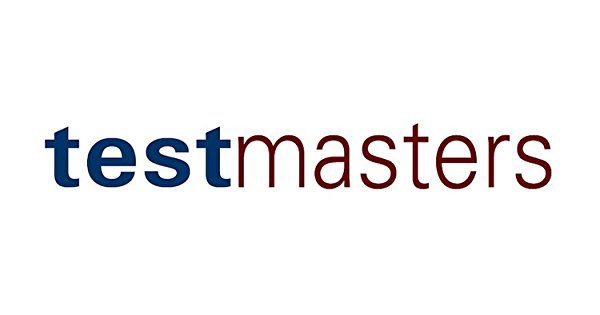
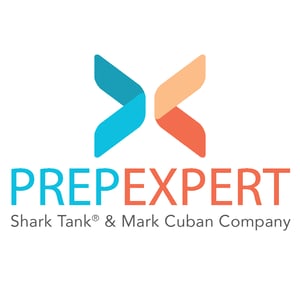
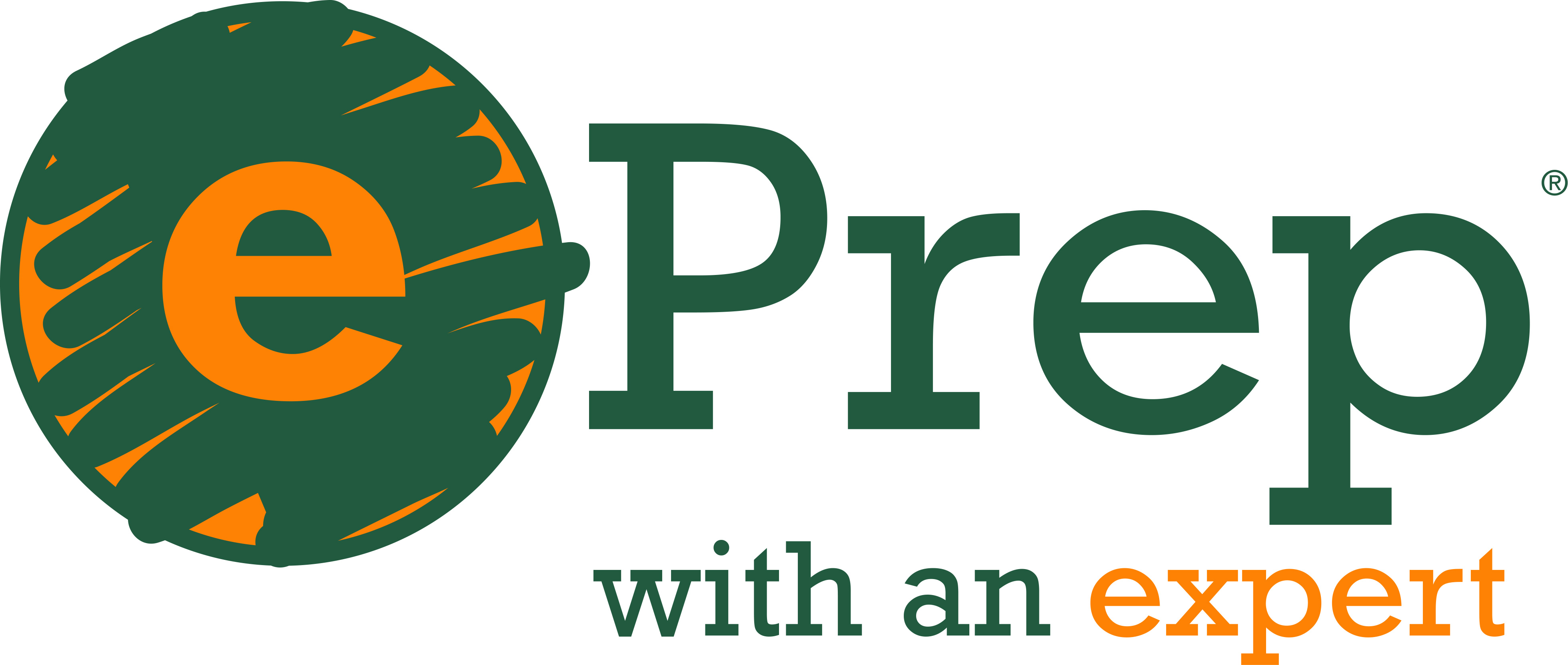










![Best Crochet Hooks for Beginners and Pros [2020 Update] best crochet books](https://www.awebtoknow.com/wp-content/uploads/2018/01/best-crochet-books-100x70.jpg)

